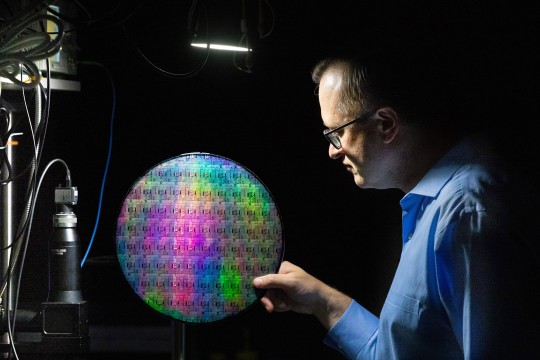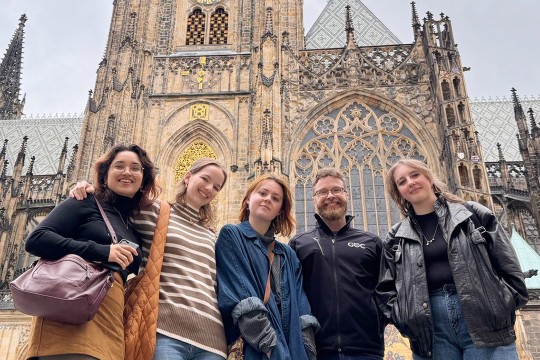Researcher gets grant to study vaccine market
Rubén Proaño to develop a comprehensive model for affordable vaccines for low income countries
Rubén Proaño
Rochester Institute of Technology received a three-year, $374,949 grant from the Bill & Melinda Gates Foundation for faculty-researcher Rubén Proaño to study and help design a coordinated decision-support system for the global procurement of vaccines.
Vaccines are considered one of the most cost-effective interventions to raise health standards of children across the globe, said Proaño, associate professor of industrial and systems engineering in RIT’s Kate Gleason College of Engineering. He has proposed an optimization-based approach to model a coordinated vaccine procurement system in an effort to understand how the neediest populations receive necessary and affordable vaccines, but also taking into account how producers and distributers of those vaccines can still profit to ensure sustainability.
“We are able to simulate a vaccine market that is coordinated, which isn’t right now, and we seek to understand how we can generate a market that is feasible, and sustainable, in a way that buyers and sellers can find common incentives to procure and sell affordable vaccines. We aim that our findings will help key global stakeholders in the vaccine market to induce benefits that will translate in improving vaccine coverage in low income countries,” said Proaño, who will manage this project and has expertise in operations research and is interested in designing optimization models for improving healthcare delivery systems. “We’ll be using some of the best public, private, market information there is to validate the models we already develop and the new ones we propose; and that is incredibly exciting. The main outputs of our work should be insights for decision-makers to ensure a healthy vaccine market for the future.”
According to the World Health Organization’s Expanded Programme on Immunization, vaccine distribution has fluctuated since 2000, with an estimated 30 million children, living in poor countries, lacking immunizations. To help meet this need, the Gates Foundation invests in vaccine research, development and delivery. The foundation works closely with key global stakeholders such as GAVI, the Global Alliance for Vaccines and Immunizations, and UNICEF toward improving global health.
Proaño’s research is expected to answer questions about understanding the impact of changing the way current markets are configured for pricing vaccines, how to sequence vaccine procurement, the impact of cooperative and non-cooperative vaccine procurement agents, and the optimal means to bundle procurement.
“We are very grateful to the Bill & Melinda Gates Foundation for its support,” said Proaño. “Our project will also provide a unique learning opportunity for the graduate and undergraduate students participating of this initiative. They will have the chance to make an impact. They will be able to apply their STEM skills to address some difficult global questions, interact with key stakeholders, and develop recommendations that can potentially lead to strategies that could improve people’s lives.”
Related articles:
Model developed to improve combination vaccine accessibility worldwide: https://www.rit.edu/news/story.php?id=48334
Model developed to improve children’s vaccine stockpile levels: https://www.rit.edu/news/story.php?id=47815













